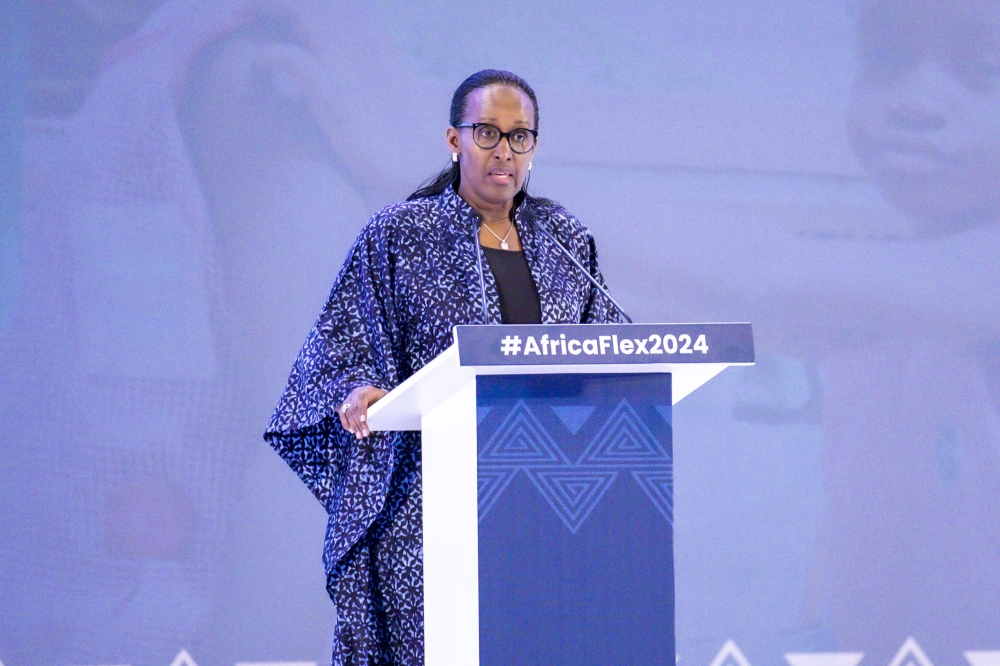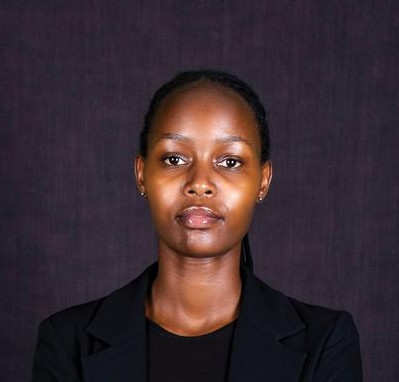

First Lady Jeannette Kagame called on Africans to unite to strengthen children's foundational learning for future development of the continent.
She made the call at the opening of the second Africa Foundational Learning Exchange (FLEX 2024), taking place in Rwanda from November 11 to 13.
Hosted by the Ministry of Education, FLEX, which has brought together education officials from Africa and experts in the field, is the continent's largest platform for advancing foundational learning.
ALSO READ: African ministers, education experts to meet in Kigali to address learning crisis
The First Lady emphasized the need for collaborative effort to ensure children’s educational foundations are strong, adaptable, and inclusive.
"Today, we are pulled in many directions away from our core responsibility of raising our families,” she said.
"We entrust our children to educational systems yet rarely engage with educators to create a cohesive support network between schools, homes, and communities.”
She called for a shift in approach to children&039;s education.
"How can we engage educators as active stakeholders in a child’s full developmental context? How do we put the child at the centre of all interventions so that their individual needs are met?," she posed. "A collective conscience among all caregivers can create protection mechanisms and remove any handicapping factors.”
The First Lady suggested that a united approach could inspire policies that address education more holistically.
She underscored the importance of foundational education, calling it the "bedrock upon which skills are built and adapted to changing times.”
Reflecting on challenges facing African children, she pointed out that despite higher literacy rates, a significant gap persists.
"Nine out of ten African children under 20 struggle with basic reading and comprehension,” she said, describing it as a "loud alarm bell” for action.
"Imagine a 10-year-old who cannot read or write well, count effectively, or thrive in an environment that nurtures positive personal qualities.”


The First Lady warned of social consequences that might arise if foundational learning does not foster key values like kindness, empathy, respect, patience, integrity, and teamwork.
"The skills we needed in past ages are no longer relevant for today’s technological age or tomorrow’s AI revolution. The quality of teacher training, equitable resource distribution, and active parental and community engagement will be critical for our youth’s future employability and social welfare.”
She expressed concern about the impact of artificial intelligence on young minds if educational foundations are not solid.
"In an age where creativity and intellectual curiosity are under threat from artificial intelligence, we must question what will happen if young Africans are not equipped with essential knowledge. Should we fail to improve foundational learning, strengthen critical thinking, and increase access to education for vulnerable learners, the long-term consequences will be severe for our continent.”
Reflecting on Rwanda’s journey, First Lady Kagame highlighted the country’s progress in transforming its education system after the 1994 Genocide against the Tutsi.
She noted that while higher education was once limited to one institution with only 2,000 graduates in 30 years, Rwanda now has 40 higher institutions with 86,140 students enrolled as of 2019.
"Education breeds confidence, which breeds hope, which ultimately brings peace. For Rwanda, peace is the goal,” she said.
She also commended the efforts of the Imbuto Foundation for its contributions to Early Childhood Development.
Launched over ten years ago, the foundation’s pilot project in Kayonza District addressed key areas such as brain stimulation, nutrition, positive parenting, and child protection.
"The programme has since expanded to 14 districts, reaching 138,000 children and parents. With a supportive policy framework, it has become a national priority through the National Child Development Agency,” she added.
The First Lady urged for sustained investment and commitment to education across Africa.
"Our budget allocations, policy coordination, training for educators and caregivers, and community engagement must match the urgency of our ambitions. Africa’s vision for 2063 will only be achievable if we lay solid educational foundations now.”


